Introduction to Off-Page SEO and Its Importance in Website Ranking

Off-page SEO, or Off-page SEO, refers to a set of activities performed outside your website to improve its ranking in search engine results.
These activities primarily focus on increasing domain authority and proving a website’s expertise to search engines.
Unlike on-page SEO, which focuses on content and site structure, off-page SEO deals with signals referred to your site from other sources.
The importance of off-page SEO is immense, as search engines like Google consider links from other sites to yours as a vote of confidence.
The more credible and relevant these links are, the higher your site’s authority will be, resulting in a better ranking.
This section provides a comprehensive explanation to fully acquaint readers with the concept of #Off_page_SEO and its distinction from on-page SEO.
In an #educational approach, we emphasize that off-page SEO is not merely about building backlinks; rather, it includes broader strategies such as brand mentions on other websites, social media activity, and user engagement.
This type of off-site optimization plays a crucial role in determining a website’s credibility and authority.
Without a strong off-page SEO strategy, even the best on-page content might get lost among a flood of other information.
Therefore, every online business and every website seeking visibility and organic traffic must seriously consider off-page SEO.
Are you losing business opportunities due to an outdated website? With Rasawve, permanently solve the problem of not attracting potential customers through your website!
✅ Attract more high-quality leads
✅ Increase brand credibility in the eyes of customers
⚡ Get a free consultation for corporate website design
What is a Backlink and Why is it Crucial for Off-Page SEO?
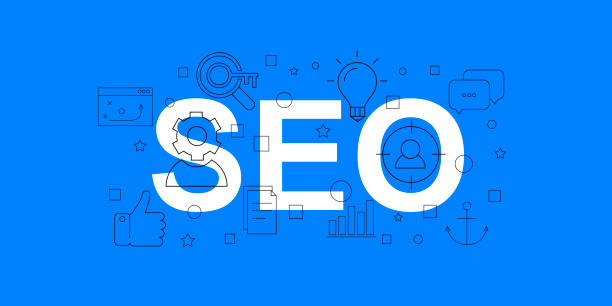
A backlink, or inbound link, is a link that points from one website to another.
In essence, when a website links to your content, it acts as a vote of confidence or a recommendation from that website to yours.
This concept holds high importance in the world of off-page SEO because search engines use backlinks as one of the most crucial ranking signals.
The greater the quantity and quality of inbound backlinks to your site, the more credible and trustworthy search engines perceive your site to be.
Simply put, backlinks are like bridges that transfer authority from one domain to another.
From a professional perspective, we must understand that not all backlinks are created equal.
Backlinks from high Domain Authority (DA) sites that are relevant to your niche are far more valuable than low-quality or spam links.
Spam links are not only useless but can also harm your site’s ranking.
Therefore, the goal in off-page SEO should not merely be to increase the number of backlinks but rather to focus on acquiring high-quality and relevant links.
This section provides a comprehensive explanation to clarify how backlinks function in improving site ranking and their key role in an off-page SEO strategy.
Understanding these concepts is essential for anyone looking to improve their website’s visibility in search engines.
Criteria for a Quality Backlink in Off-Page SEO

To achieve the best results from an off-page SEO strategy, simply having backlinks is not enough; the quality of these links is of paramount importance.
Several key criteria determine the quality of a backlink, and understanding them is vital for anyone involved in off-site optimization.
The first and perhaps most crucial criterion is the Domain Authority (DA) and Page Authority (PA) of the website linking to you.
The higher a site’s DA or PA, the more authority is passed to your site through that link.
Websites like Moz or Ahrefs provide tools to measure these criteria.
The second criterion is topical relevance.
A link from a site related to your industry or field of work is far more valuable than a link from a completely unrelated site.
For example, if you own a bicycle shop, a link from a reputable cycling blog is worth more than a link from a cooking website.
The third criterion is the link’s placement on the page and its naturalness.
Links naturally embedded within a page’s main content are more effective than links located in the footer or sidebar.
In this section, we guide you on how to create targeted and high-quality backlinks for your off-page SEO using these criteria.
The fourth criterion is Anchor Text.
Anchor text refers to the words used as a link.
Using relevant and diverse anchor text that includes your target keywords as well as more general terms helps search engines better understand the topic of the destination page.
However, be careful to avoid over-optimized keyword-rich anchor text, as this can be considered a spam technique.
Finally, whether a link is nofollow or dofollow is also important.
Dofollow links pass authority, while nofollow links do not, but they can still bring traffic and brand awareness.
In the table below, we compare these two types of links:
| Feature | Dofollow Link | Nofollow Link |
|---|---|---|
| Authority Transfer (Link Juice) | Yes, transfers authority | No, does not transfer authority |
| Impact on SEO Ranking | Direct and positive impact | Indirect impact (traffic, branding) |
| Primary Goal | Improve ranking in off-page SEO | Prevent crawling by bots, preserve authority |
| Common Uses | Natural and contextual links | Sponsored links, user comments, untrusted external links |
Successful Link-Building Strategies in Off-Page SEO

After understanding the importance of backlinks and their quality criteria, it’s time to learn about effective strategies for acquiring these valuable links.
Link Building is an integral part of off-page SEO and involves numerous methods, each with its own advantages and disadvantages.
One of the most widely used and effective strategies is Guest Posting.
In this method, you write high-quality and relevant content for another website in your niche, and in return, you receive a link to your own site.
This strategy not only helps you acquire backlinks but also leads to increased brand awareness and referral traffic.
Another strategy is Broken Link Building.
In this method, you search for broken links on other websites and then inform the site owners that they have a dead link on their site.
Simultaneously, you suggest that they replace that dead link with your relevant content.
This is a win-win approach; you gain a backlink, and the target website improves its user experience.
Creating Linkable Assets such as infographics, case studies, free tools, or in-depth research articles is also a powerful strategy for off-page SEO.
These types of content are naturally referenced by others and help you acquire natural, high-quality links without needing to directly ask for them.
In summary, for successful off-page SEO, you should seek creative and valuable opportunities to acquire links.
Tired of losing business opportunities due to lacking a professional corporate website? Worry no more! With Rasawve’s corporate website design services:
✅ Your brand’s credibility and professionalism will increase.
✅ You’ll attract more customers and sales leads.
⚡ Get a free consultation to start now!
Off-Page SEO Beyond Backlinks: Complementary Factors in Off-Site Optimization

Although backlinks form the backbone of off-page SEO, this domain is not limited to link building alone.
There are other complementary factors that play a significant role in off-site optimization and strengthening your domain authority.
One such factor is Brand Mentions.
Even if your brand name is mentioned without a link on other reputable websites, search engines can consider these instances as a positive signal.
These mentions indicate that your brand is recognized and discussed in the online space, which helps increase brand authority and awareness.
This is an analytical approach that shows Google and other search engines are increasingly focusing on brand authority signals.
Furthermore, Social Signals are also important in off-page SEO, although their direct impact on ranking is less than that of backlinks.
Consistent and effective activity on social networks, sharing content, interacting with users, and increasing followers can lead to increased visibility of your content, attracting traffic to your website, and ultimately, acquiring natural backlinks.
These types of activities indirectly help strengthen your off-page SEO.
Finally, Online Reviews also play a crucial role, especially for local businesses.
Positive reviews on sites like Google My Business, Yelp, and other review platforms not only increase your credibility among users but also show search engines that your business is active, reputable, and trustworthy.
Have you ever considered these dimensions of off-page SEO? This question challenges thought-provoking content.
The Role of Social Media in Off-Page SEO and Enhancing Online Presence
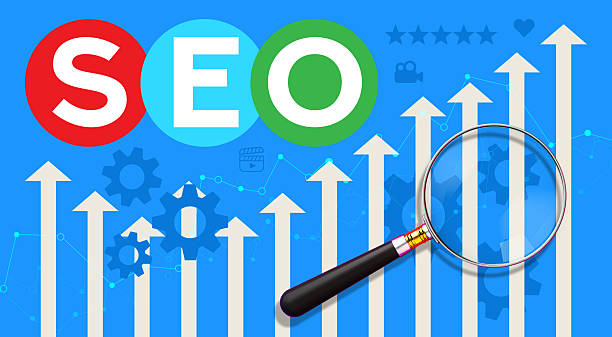
In today’s digital world, social media platforms are not only for personal communication and entertainment but also powerful tools for digital marketing strategies and off-site optimization.
Although direct links from social media are often “nofollow” and do not directly transfer domain authority, their role in off-page SEO should not be underestimated.
Social media can act as a catalyst for increasing content visibility, attracting traffic to your website, and ultimately, acquiring natural backlinks.
When your content is shared and interacted with on social media, the likelihood of other websites seeing it and linking to it increases.
This is good news for content marketers: consistent and strategic activity on platforms like Instagram, LinkedIn, Twitter, and Facebook can indirectly contribute to off-page SEO.
Sharing blog posts, infographics, videos, and other engaging content on social media can drive significant traffic to your site.
This traffic can lead to reduced bounce rates, increased user dwell time, and improved user engagement signals, all of which send positive signals to search engines.
Furthermore, social media activity helps with brand building and increasing brand awareness.
A strong and recognized brand is more prone to receiving natural links and brand mentions.
This is the fun aspect of off-page SEO that allows you to connect with your audience and build a community around your content, ultimately helping improve your SEO.
Reviewing and Monitoring Backlink Profile: Methods and Tools for Off-Page SEO
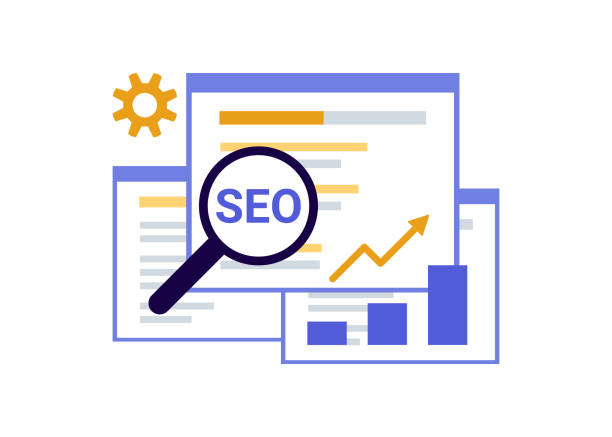
One of the most important steps in managing off-page SEO is regularly monitoring and reviewing your site’s backlink profile.
This allows you to identify valuable links, detect spam or malicious links, and ensure the overall health of your link profile.
Neglecting this step can lead to a decrease in your site’s ranking, as Google constantly updates its algorithms to identify unnatural and manipulated links.
Numerous tools are available for this purpose to assist you in off-page SEO analysis.
Among these tools are Ahrefs, Moz Link Explorer, Semrush, and Google Search Console.
Google Search Console is a free and essential tool provided by Google itself, offering information about inbound backlinks to your site.
Using these tools, you can view and examine the number of backlinks, referring domains, anchor text, and even toxic links.
Identifying and removing or disavowing toxic links via Google’s Disavow tool is crucial for maintaining the health of your off-page SEO profile.
This section is a specialized guide for managing your off-site optimization.
Continuous monitoring helps you identify new link acquisition opportunities and optimize your link-building strategies.
It also allows you to stay informed about competitors’ link-building activities and learn from them.
An effective off-page SEO strategy requires constant vigilance and quick reactions to changes.
The table below lists some commonly used tools and their features for off-page SEO monitoring:
| Tool Name | Key Features | Suitable For |
|---|---|---|
| Ahrefs | Comprehensive backlink analysis, keyword research, competitor analysis | SEO analysts, content marketers |
| Moz Link Explorer | Domain and page authority check, spam link discovery | SEO marketers, site managers |
| Semrush | Backlink analysis, SEO audit, keyword position tracking | SEO specialists, digital marketing agencies |
| Google Search Console | Backlink reports, crawl errors, Disavow tool | All website managers |
Avoiding Black Hat Off-Page SEO Techniques and Their Consequences
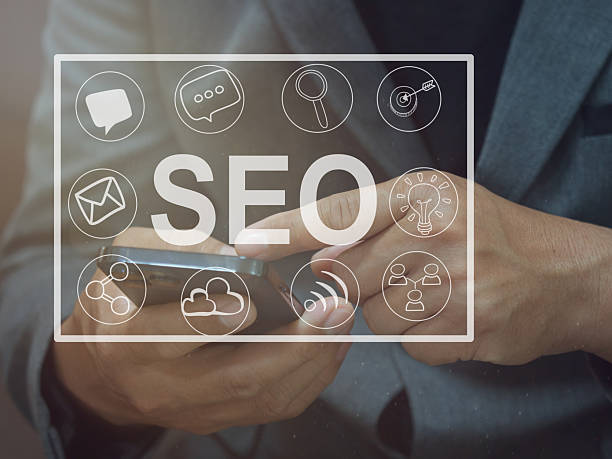
In the world of SEO, there’s always a temptation to use shortcuts and illicit techniques to quickly achieve high rankings.
These techniques, known as Black Hat SEO, are particularly dangerous in the realm of off-page SEO.
Techniques such as bulk backlink purchasing, creating Private Blog Networks (PBNs), using spam links in blog comments and forums, or employing automated software for link generation, all fall into this category.
The goal of these techniques is to deceive search engine algorithms to create artificial authority for a website.
However, the consequences of using these methods can be highly detrimental.
Search engines like Google are constantly updating their algorithms to identify and counter such unnatural practices.
If detected, your website might face a Google penalty, which could include a severe drop in ranking, complete removal from search results, or even a permanent loss of organic traffic.
Recovering from such penalties can be very difficult and time-consuming.
This section provides an important explanation of the risks associated with off-site optimization using improper methods.
It is always recommended to use White Hat SEO and ethical techniques in off-page SEO, which focus on creating genuine value and acquiring natural, high-quality links.
While this approach might be more time-consuming, it brings stable and reliable results for your site.
Did you know that 94% of users’ first impressions of a business are related to its website design? With professional corporate website design by **Rasawve**, transform this first impression into an opportunity for growth.
✅ Attract more customers and increase sales
✅ Build credibility and trust in the audience’s eyes⚡ Get a free website design consultation!
The Future of Off-Page SEO and New Trends

The world of SEO is constantly evolving, and off-page SEO is no exception.
With the advancement of artificial intelligence and the increasing complexity of search engine algorithms, new approaches and trends are emerging that will shape the future of off-site optimization.
One of the most important future trends is a greater focus on Experience, Expertise, Authoritativeness, and Trustworthiness (E-E-A-T).
Google is increasingly looking for signals that indicate a website has experience, expertise, authority, and trustworthiness.
This means that backlinks from reputable and relevant sources that provide high-quality and in-depth content will gain more importance.
Furthermore, Relationship-based Link Building will gain more importance than merely focusing on the number of links.
Building genuine relationships with influencers, journalists, and reputable website owners in your niche can lead to acquiring natural and valuable links.
The thought-provoking content in this regard is: how can we build meaningful and sustainable relationships in a world where everyone is chasing links? Also, Unlinked Brand Mentions will increasingly gain significance, as artificial intelligence can identify these mentions and consider them a positive signal for off-page SEO.
Overall, the future of off-page SEO is moving towards more natural, value- and authority-based approaches, and less reliance on purely technical tactics.
This is important news for SEO strategists who must always stay updated.
Conclusion and Key Tips for Sustainable Off-Page SEO
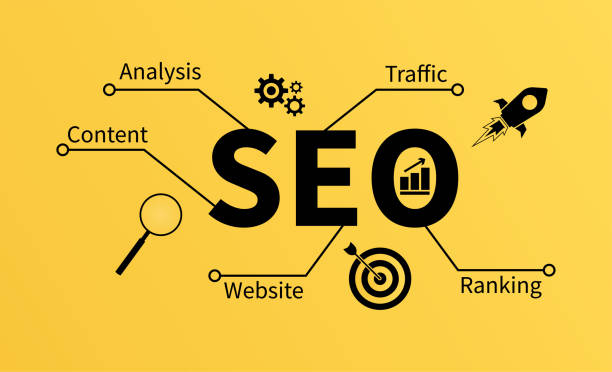
Throughout this article, we’ve explored various dimensions of off-page SEO and realized that this field is one of the main pillars of success in search engine rankings.
Off-page SEO is more than a simple technique for acquiring backlinks; it’s a comprehensive strategy that involves increasing your website’s authority, expertise, and trust in the eyes of both search engines and users.
To achieve sustainable off-page SEO, special attention must be paid to several key points.
The first point is to focus on quality over quantity in link building.
A high-quality backlink from a reputable and relevant website is worth far more than dozens of low-quality or spam links.
The second point is to produce excellent and shareable content that naturally encourages users and other websites to link to you.
Your content should be so valuable that others want to share it with their audience.
Third, diversify your link profile; use various sources to acquire links and do not rely solely on one type of link building.
Fourth, do not forget to continuously monitor and review your backlink profile to ensure its health, and to identify and neutralize malicious links.
Finally, always adhere to white-hat SEO techniques and avoid any illicit actions that could harm your site’s ranking and authority.
This educational guide helps you implement an effective and sustainable off-page SEO strategy and achieve your digital marketing goals.
Frequently Asked Questions
| Row | Question | Answer |
|---|---|---|
| 1 | What is Off-Page SEO? | Off-page SEO refers to a set of actions performed outside your website to improve its ranking in search engines. These actions include backlink building, social media presence, branding, and more. |
| 2 | Why is Off-Page SEO highly important? | Off-page SEO shows search engines that your website is authoritative, popular, and trustworthy. High-quality backlinks from reputable sites are strong signals for better ranking and help increase your domain authority. |
| 3 | What are the most important components of Off-Page SEO? | The most important components of Off-Page SEO include: Link Building, Content Marketing, Social Media Marketing, Influencer Marketing, and Online Reputation Management. |
| 4 | What is a backlink and why is it important for Off-Page SEO? | A backlink (Backlink) is a link that points from another website to your website. These links act as “votes of confidence” from Google’s perspective and indicate the credibility of your content. The higher the number and quality of backlinks, the better your site’s ranking will be. |
| 5 | What are the types of backlinks in terms of SEO impact? | The two main types of backlinks are DoFollow and NoFollow. DoFollow backlinks pass authority (Link Juice) and directly affect ranking. NoFollows do not pass authority but can still generate traffic and help make the link profile appear natural. (Also UGC and Sponsored) |
| 6 | How can I create quality backlinks for my site? | To build high-quality backlinks, you can use methods such as: creating excellent and shareable content, Guest Posting (Guest Posting) on relevant and reputable sites, Broken Link Building, Digital PR, and analyzing competitor backlinks. |
| 7 | What are Toxic Backlinks and how do they affect a site? | Toxic or spam backlinks are links that point to your site from low-quality, spammy, or irrelevant websites. These backlinks can harm your site’s ranking and even lead to penalties by Google’s algorithms. |
| 8 | What is the role of social media in Off-Page SEO? | Although social signals (likes, shares, etc.) are not direct ranking factors, they help Off-Page SEO. They increase content visibility, drive direct traffic to the site, and ultimately increase the chance of acquiring natural backlinks and improving brand recognition. |
| 9 | What is the importance of diversity in a backlink profile? | Diversity in a backlink profile means that your links come from various sources (blogs, forums, news sites, directories), with diverse anchor texts, and with a mix of DoFollow and NoFollow links. This diversity signals to Google that your link-building is natural and organic. |
| 10 | What are common mistakes in Off-Page SEO that should be avoided? | Common mistakes include: purchasing backlinks in large volumes from low-quality sources, over-optimizing link building with target keywords (Over-optimization), neglecting quality in favor of quantity in backlink building, lack of diversity in the link profile, and ignoring toxic backlinks and not Disavowing them. |
And other services of Rasawve Advertising Agency in the field of advertising:
Smart Customer Journey Map: Professional optimization for increasing click-through rates using Google Ads management.
Smart Marketplace: A professional solution for digital branding focusing on intelligent data analysis.
Smart Conversion Rate Optimization: A specialized service for campaign management growth based on user experience customization.
Smart Marketplace: Revolutionize click-through rates with custom programming.
Smart Website Development: A new service to enhance campaign management through key page optimization.
And over hundreds of other services in the field of internet advertising, advertising consultation, and organizational solutions
Internet Advertising | Advertising Strategy | Advertorials
Sources
SEO Gama – What is Off-Page SEO?
TopLearn – Off-Page SEO Training
Aparat – What is Off-Page SEO?
Virgool – Off-Page SEO
? To shine in the online space, you need a reliable partner. Rasawve Afarin, a leading digital marketing agency, paves your path to digital success by providing comprehensive services including SEO, smart advertising, and personal website design. Contact us today and transform the future of your business!
📍 Tehran, Mirdamad Street, next to Bank Markazi, Kazeroon Jonubi Alley, Ramin Alley, No. 6




